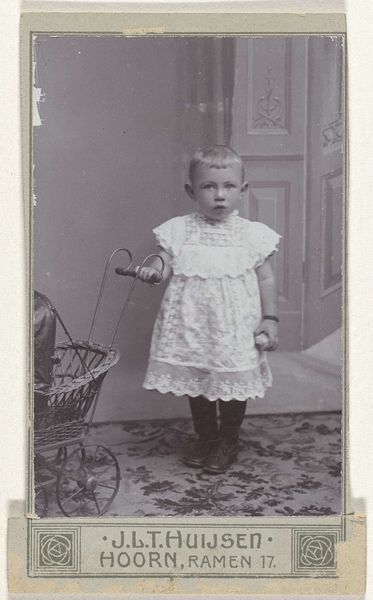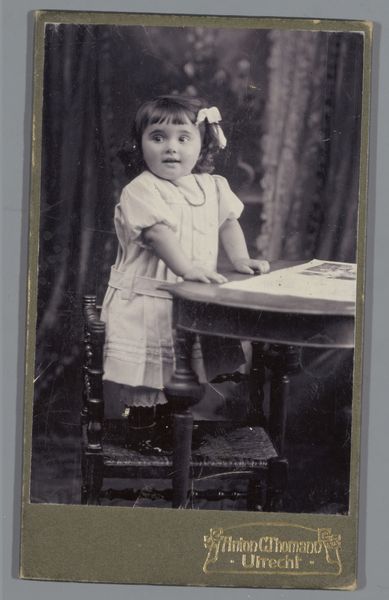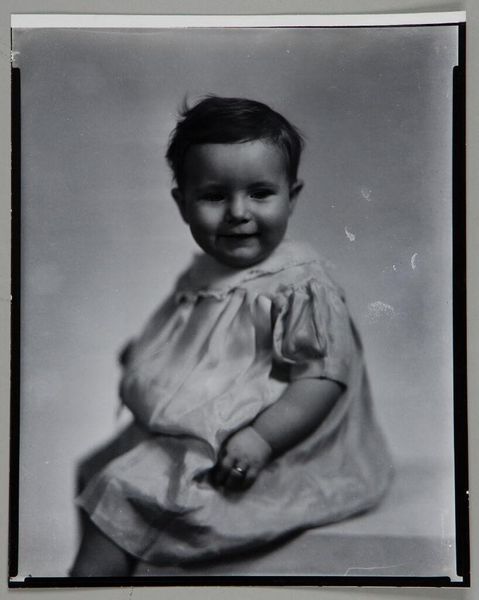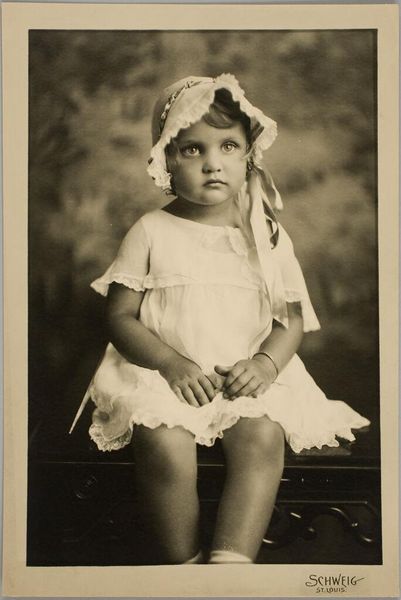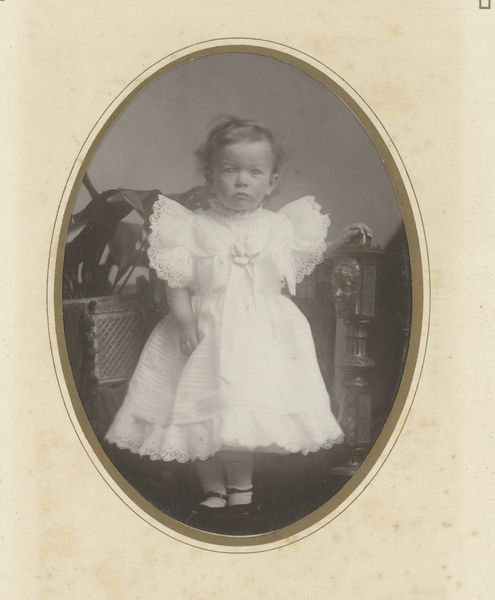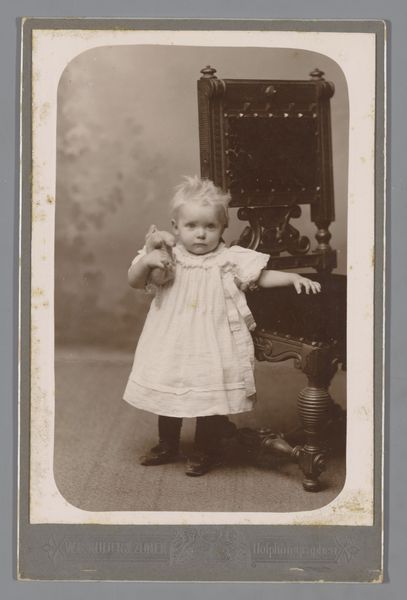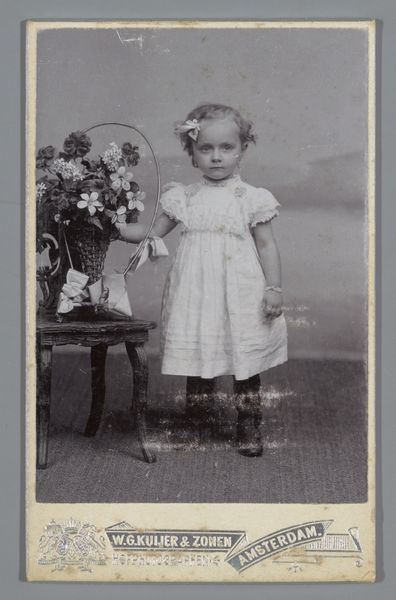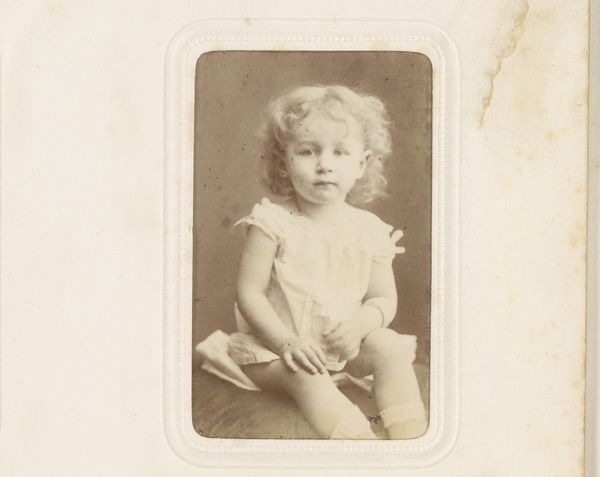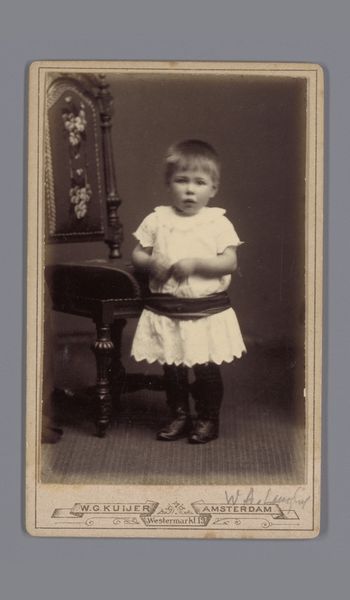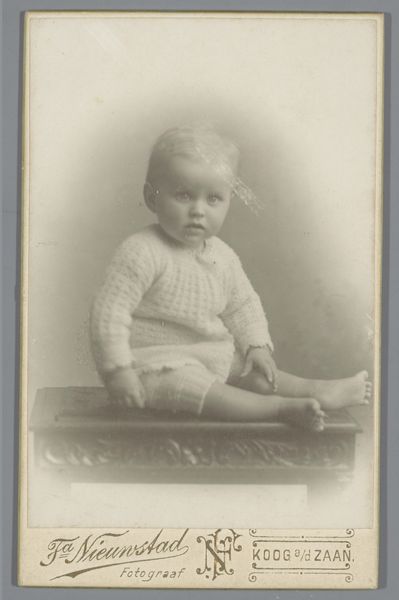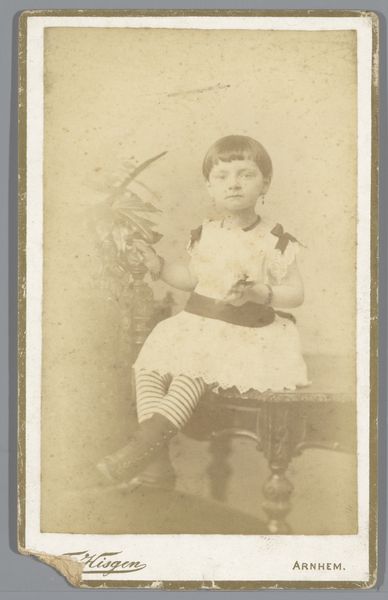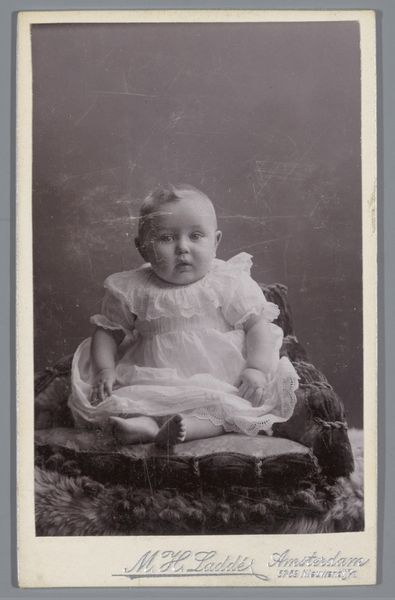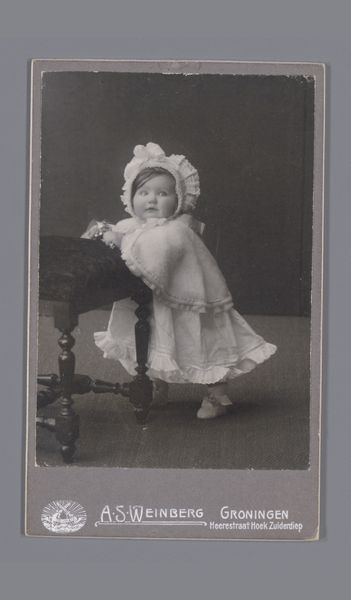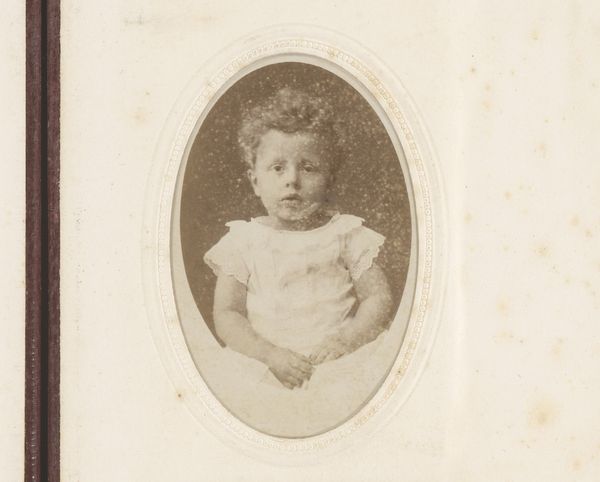
#
photo restoration
#
historical photography
#
portrait reference
#
strong emotion
#
framed image
#
yellow element
#
19th century
#
portrait drawing
#
portrait art
#
fine art portrait
Dimensions: height 93 mm, width 56 mm
Copyright: Rijks Museum: Open Domain
Editor: This is "Portret van een kind met een speelgoedhond," or "Portrait of a Child with a Toy Dog," dating from around 1910 to 1920. It appears to be a vintage photograph. There’s a sense of formal portraiture here, but also a hint of childhood innocence in the way the child is clutching that toy dog. What stands out to you when you look at this portrait? Curator: The enduring power of such images lies in their ability to function as vessels of collective memory. The toy dog, for example, isn't merely a plaything; it's a cultural artifact representing companionship, comfort, and even social status depending on the era and type of dog. The child's direct gaze also holds significance. What feelings does it evoke? Editor: I think it evokes a sort of seriousness. I mean, it’s a child, but there’s very little joy apparent in their expression. Do you think that this direct gaze and solemn expression are intentional? Curator: Very likely. Early portraiture often aimed to convey dignity and posterity. The solemn expression may reflect an attempt to imbue the child with an air of importance. We should also consider the stick the child is holding; it may function as a sceptre. Editor: That's a fascinating thought! A sceptre of childhood. It adds an intriguing layer of complexity to an otherwise simple portrait. The whole scene appears like a conscious construction that immortalizes something precious for posterity. I had only seen the child’s innocence at first glance. Curator: Precisely. By analyzing the symbology of the props as a set of gestures, one uncovers layers of meaning embedded within the image, offering glimpses into the cultural values and social attitudes prevalent at the time. Considering such images can broaden our awareness and expand the experience of art and history. Editor: That really broadens my appreciation for this kind of photography. I see the composition with fresh eyes, thinking more critically about the choices behind the image. Thank you!
Comments
No comments
Be the first to comment and join the conversation on the ultimate creative platform.
